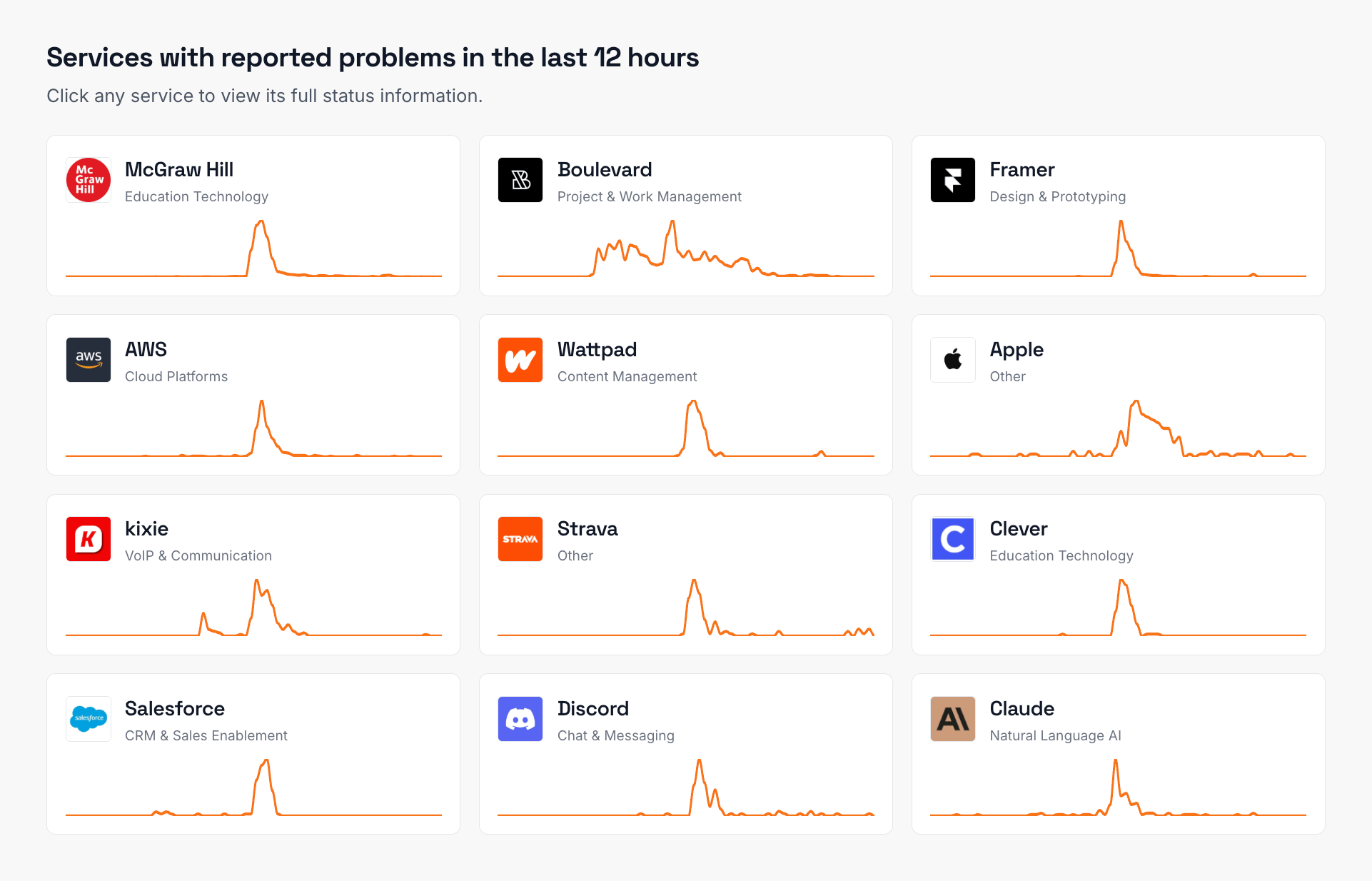What is IT Ops? All You Need to Know in 2025
IT Operations, commonly known as IT Ops, forms the backbone of every organization's technology infrastructure. IT Ops teams ensure that all systems, networks, and services run smoothly, keeping businesses operational 24/7.
Understanding IT Operations
IT Operations encompasses all the activities and processes required to manage and maintain an organization's IT infrastructure. This includes everything from server management and network administration to incident response and system monitoring. IT Ops teams act as the guardians of technology reliability, ensuring that both internal systems and customer-facing services remain available and performant.
The scope of IT Operations has evolved significantly over the past decade. While traditional IT Ops focused primarily on maintaining on-premises infrastructure, modern teams now manage complex hybrid environments spanning cloud services, containerized applications, and distributed systems.
Core Responsibilities of IT Ops Teams
IT Operations teams handle a diverse range of responsibilities that keep organizations running smoothly:
Infrastructure Management: Maintaining servers, networks, storage systems, and cloud resources
System Monitoring: Tracking performance metrics, availability, and potential issues across all systems
Incident Response: Quickly identifying and resolving outages or performance degradations
Security Operations: Implementing security patches, managing access controls, and monitoring for threats
Capacity Planning: Ensuring systems can handle current and future workloads
Backup and Recovery: Protecting data and maintaining disaster recovery capabilities
Vendor Management: Coordinating with third-party service providers and managing external dependencies
The Evolution from Traditional to Modern IT Ops
Traditional IT Operations often operated in silos, with separate teams managing different aspects of infrastructure. This approach worked when systems were simpler and changes happened less frequently. However, the rise of cloud computing, microservices, and continuous deployment has transformed how IT Ops functions.
Modern IT Operations embraces automation, collaboration, and proactive monitoring. Teams now use sophisticated tools to manage infrastructure as code, automate routine tasks, and predict potential issues before they impact users. This shift has made IT Ops more strategic and less reactive.
Essential Tools and Technologies
Successful IT Operations relies on a comprehensive toolkit that enables teams to manage complex environments efficiently:
Monitoring and Observability Tools provide visibility into system performance and health. These platforms collect metrics, logs, and traces to help teams understand what's happening across their infrastructure. For organizations relying on multiple third-party services, status page aggregators centralize monitoring data from various vendors into a single dashboard.
Configuration Management Systems help teams maintain consistent configurations across hundreds or thousands of servers. Tools like Ansible, Puppet, and Chef enable infrastructure as code practices, making deployments repeatable and reducing configuration drift.
Incident Management Platforms coordinate response efforts when issues arise. These tools help teams track incidents, communicate status updates, and conduct post-incident reviews to prevent future occurrences.
Automation Frameworks reduce manual work and human error. From automated deployments to self-healing systems, automation has become central to modern IT Operations.
IT Ops vs DevOps: Understanding the Relationship
While IT Ops and DevOps share some similarities, they serve different purposes within an organization. IT Operations focuses on maintaining stability and reliability of existing systems. DevOps, on the other hand, bridges development and operations to accelerate software delivery while maintaining quality.
Many organizations now blend IT Ops and DevOps practices, creating a more collaborative environment where operational concerns are considered throughout the development lifecycle. This integration helps teams build more reliable systems from the start rather than trying to stabilize them after deployment.
Key Performance Indicators for IT Operations
Measuring IT Ops effectiveness requires tracking specific metrics that reflect system reliability and team performance:
System Uptime: The percentage of time services remain available
Mean Time to Detect (MTTD): How quickly teams identify issues
Mean Time to Resolve (MTTR): The average time to fix problems
Change Success Rate: Percentage of changes that don't cause incidents
Ticket Resolution Time: How quickly teams address user requests
Resource Utilization: Efficiency of infrastructure usage
These metrics help teams identify areas for improvement and demonstrate value to stakeholders.
Best Practices for Effective IT Operations
Successful IT Operations teams follow established practices that promote reliability and efficiency:
Implement Comprehensive Monitoring: Deploy monitoring across all critical systems and establish clear alerting thresholds. This includes monitoring both internal systems and external dependencies that could impact service availability.
Document Everything: Maintain up-to-date documentation for systems, processes, and procedures. Good documentation reduces dependency on individual team members and speeds up incident resolution.
Automate Repetitive Tasks: Identify routine activities that can be automated, freeing team members to focus on more strategic work. Start with simple automation and gradually tackle more complex processes.
Practice Incident Response: Regular drills and simulations help teams respond more effectively during real incidents. This preparation reduces stress and improves outcomes when problems occur.
Foster Continuous Learning: Technology changes rapidly, so IT Ops teams must continuously update their skills. Encourage certification programs, conference attendance, and knowledge sharing within the team.
Challenges Facing Modern IT Ops Teams
IT Operations teams face several ongoing challenges in today's complex technology landscape:
Increasing Complexity: Modern applications rely on numerous interconnected services, making troubleshooting more difficult. Teams must understand not just their own systems but also how external dependencies affect overall performance.
Skills Gap: Finding professionals with the right mix of traditional IT skills and modern cloud expertise remains challenging. Organizations must invest in training and development to build capable teams.
Alert Fatigue: With more systems to monitor, teams can become overwhelmed by alerts. Implementing intelligent alerting and automated triage systems helps teams focus on genuinely critical issues.
Budget Constraints: IT Ops teams must balance the need for robust infrastructure with cost considerations. This requires careful planning and optimization of resource usage.
The Future of IT Operations
IT Operations continues to evolve as technology advances. Several trends are shaping the future of the field:
AI and Machine Learning: Predictive analytics and automated problem resolution will become more prevalent, helping teams prevent issues before they occur.
Edge Computing: As computing moves closer to users, IT Ops teams will need to manage distributed infrastructure across multiple locations.
Sustainability Focus: Environmental concerns are driving teams to optimize resource usage and reduce energy consumption in data centers.
Enhanced Automation: Self-healing systems and intelligent automation will handle more routine tasks, allowing IT Ops professionals to focus on strategic initiatives.
Getting Started in IT Operations
For those interested in pursuing a career in IT Operations, several paths can lead to success:
Start by building a strong foundation in networking, operating systems, and basic scripting. Pursue relevant certifications like CompTIA A+, Network+, or cloud provider certifications. Gain hands-on experience through internships, home labs, or contributing to open-source projects.
Develop both technical and soft skills. While technical expertise is crucial, communication, problem-solving, and teamwork abilities are equally important for IT Ops success.
Conclusion
IT Operations remains a critical function in every organization, ensuring that technology serves business needs reliably and efficiently. As systems become more complex and distributed, the role of IT Ops continues to evolve, requiring new skills and approaches while maintaining the core mission of keeping systems running smoothly.
Success in IT Operations requires a combination of technical expertise, strategic thinking, and continuous adaptation to new technologies and methodologies. By following best practices and embracing modern tools and approaches, IT Ops teams can deliver the reliability and performance that organizations need to thrive in an increasingly digital world.
Frequently Asked Questions
What is IT Ops and why is it important?
IT Ops refers to the teams and processes responsible for maintaining an organization's technology infrastructure. It's important because IT Ops ensures that all systems, applications, and services remain available and performant, directly impacting business operations and customer satisfaction. Without effective IT Operations, organizations would face frequent outages, security vulnerabilities, and inefficient use of technology resources.
What skills do I need for an IT Operations career?
Successful IT Ops professionals need a mix of technical and soft skills. Technical skills include knowledge of operating systems (Linux/Windows), networking, cloud platforms, scripting languages (Python, Bash), and monitoring tools. Soft skills like problem-solving, communication, time management, and the ability to work under pressure are equally important for handling incidents and collaborating with other teams.
How does IT Ops differ from IT support?
While both involve technology management, IT Ops focuses on maintaining and optimizing infrastructure and systems at scale, while IT support primarily helps individual users with their technology issues. IT Operations teams manage servers, networks, and applications that serve thousands of users, while IT support typically handles desktop issues, password resets, and user training. IT Ops is more proactive and strategic, while IT support is often reactive and user-focused.
What are the typical career paths in IT Operations?
IT Operations offers several career progression paths. Entry-level positions include Junior System Administrator or NOC Technician. Mid-level roles include System Administrator, Network Engineer, or Cloud Engineer. Senior positions include IT Operations Manager, Infrastructure Architect, or Site Reliability Engineer. Many professionals also specialize in areas like security operations, database administration, or cloud architecture.
 Nuno Tomas
Founder of IsDown
Nuno Tomas
Founder of IsDown
The Status Page Aggregator with Early Outage Detection
Unified vendor dashboard
Early Outage Detection
Stop the Support Flood
Related articles
Never again lose time looking in the wrong place
14-day free trial · No credit card required · No code required





